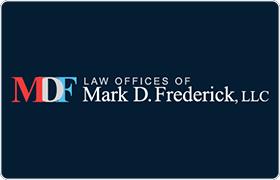 Meraux Adoption Lawyers, Louisiana
Meraux Adoption Lawyers, Louisiana
Sponsored Law Firm
-
 x
x

Click For More Info:
-
The Law Offices of Mark D. Frederick, LLC
2800 Youree Drive Suite 400 Shreveport, LA 71104» view mapDivorce & Family Law Committed, Concerned Shreveport Attorney
Versatile, client-focused Mark D. Frederick established his law practice nearly a quarter-century ago for one reason: to help those facing a crisis involving the legal system.
318-868-7300
Lawyers
1-2 of 2 matches
Adoption, Alimony & Spousal Support, Dispute Resolution, Animal Bite
Administrative Law, Corporate, Adoption, Family Law, Admiralty & Maritime



 Mark Frederick Shreveport, LA
Mark Frederick Shreveport, LA Practice AreasExpertise
Practice AreasExpertise